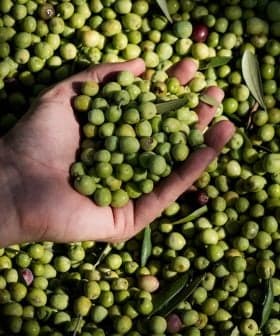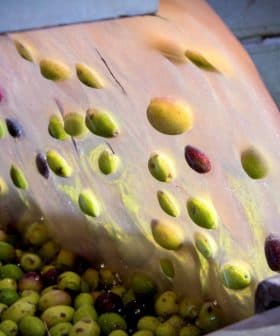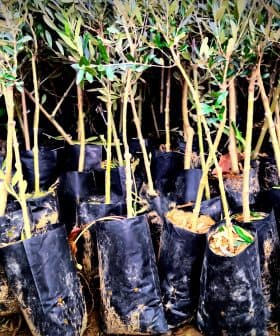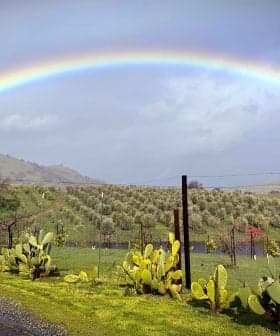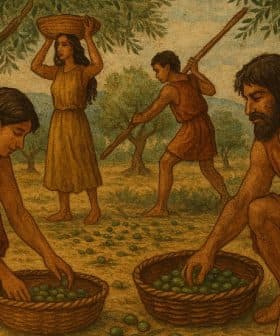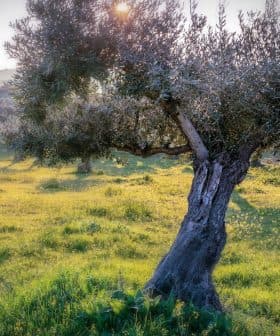UC Davis Olive Center Turns 10
The University of California at Davis Olive Center celebrates its tenth anniversary this week as a research and education center that continues to make an impact on the olive oil industry worldwide.
 UC Davis Olive Center director Dan Flynn (Photo: NYIOOC)
UC Davis Olive Center director Dan Flynn (Photo: NYIOOC)The University of California at Davis opened a new center dedicated to olives and olive oil in 2008, aiming to replicate the success of its wine program. Over the past decade, the center has made significant contributions to the industry, including a landmark study in 2010 that exposed labeling inaccuracies in imported olive oils and led to improved quality standards in California. The center’s work has been praised for its impact on the industry and its efforts to educate growers and consumers.
A notification circulated through the University of California at Davis website on January 18, 2008 announced the opening of a brand new center dedicated to olives and olive oil.
“Hoping to do for olives and olive oil what it has done for grapes and wine, UC Davis this week launched the first university-based olive research and education center in North America,” the announcement read.
I would be willing to declare victory on what we had set out to do.
One decade later Dan Flynn, the founder and executive director of the Olive Center, is willing to say: mission accomplished.
“I would be willing to declare victory on what we had set out to do,” Flynn told Olive Oil Times. “Not that the story is finished, but we’ve been able to really make a mark internationally and set up a center that’s going to last beyond the time that I’ll be around.”
The Olive Center has accomplished a lot in the past decade, from a 2010 olive oil quality study that has changed the industry to hosting the International Olive Council’s (IOC) first scientific conference in the United States in nearly two decades.
The center, which has been touted as a model of success, came from humble beginnings. In 2008, Flynn was about ready to leave his job in the California legislature to try something new. During his last month there, he met Sal Genito who managed the grounds at UC Davis and had a problem.
See Also:Articles on the UC Davis Olive Center
“He had an issue at the campus with olives falling on the bike path. People would run over the olives and slip and fall and some of them would sue the university,” Flynn said. “His idea was that he wanted to produce some olive oil and then maybe sell it as a campus product.”
Flynn wrote a feasibility study for Genito and calculated that the olive oil program could bring in more than $11,000 per year as well as save the university the $60,000 it spent on accidents and cleaning up the bike path each year.
Flynn started to work with Regino, helping him to run the program. He suggested that it would be a good idea for UC Davis to have an olive oil research and education center.
“After helping to run the program for about a year, I was able to organize a group of faculty and some industry people,” Flynn said. “They helped plan out the idea and then the university approved it. That’s how the olive center got started.”
Then came that landmark study in 2010, which found that 69 percent of imported olive oils tested in California did not meet the standards that their labels claimed. The study led to consumer organizations and other countries conducting their own tests and they found similar results.
“I think now that the uproar has died down, the study has led to some good things,” Flynn said. “Every producer, no matter where they are, has to be concerned with sustaining quality for the time that the oil is on the shelf.”
Since then, a report from the Olive Oil Commission of California (OOCC) said both quality and accuracy of labeling has increased in California. According to Patricia Darragh, the executive director of the California Olive Oil Council (COOC), the Olive Center played a crucial role in improving both of these factors.
“Over the last decade, both the COOC and the entire olive oil industry have benefitted from the immense scope of research that the center has undertaken,” she said. “This research has assisted in raising the bar for quality.”
Gregg Kelley is the CEO of California Olive Ranch, the largest American olive oil producer. He has worked closely with the Olive Center before on various projects and said that the growth of the olive oil sector in California is due to the work the center does.
“Their research helps maintain strict quality standards in the industry, which we are now seeing the rest of the industry adopt,” Kelley said. “In the last six years, the US segment has gone from less than one percent to six percent, and we do credit the Olive Center’s efforts for this.”
From the very beginning, the Olive Center has tried to do with olive oil what UC Davis had already done with viticulture and serve an academic purpose on the campus as well.
“The Olive Center has done a great job of creating and establishing rigorous standards of testing in order to uphold the integrity of delicious olive oil not only here in California but across the globe,” Kelley said.
“The center’s main goal is to educate both the grower and consumer on the economic and agricultural variables involved in the domestic olive oil industry, and we feel the work they’ve done over the past decade has done just that.”
The center will continue to innovate and grow, which Flynn said are two things that excite both the university officials and industry members.
“The Olive Center has developed a high regard among the faculty as a center that’s worked, and one that is adding and enhancing the ability of the faculty to do their jobs,” he said.
“I think that the industry has also been gratified at the work we’ve been able to accomplish for them and what we’ve been able to do is provide the type of resource that the traditional major producing countries have.”
Kelley agreed, calling the center an overall success. The center’s work has improved and supported milling operations, bottling facilities, and an overall understanding of the science behind olive oil production.
Moving forward, Flynn said that the Olive Center will continue to work on improving the methods by which olive oil is produced and work with producers on improving oil quality through more efficient and cheaper methods of analyzing oil.
Kelley said that he would like to see more of the same from the Olive Center, with a continued emphasis on educating growers and producers about how to produce the highest quality of olive oil possible.
“For our grower partners, we’d like increased education available on growing and harvesting olives; studies showing how to increase yields while reducing tree pests and disease that may impact quality or processing,” he said. “The Olive Center has been a vital leader in the betterment of the olive industry and we are proud supporters of their tremendous efforts.”



